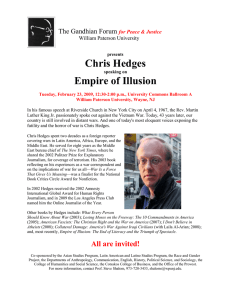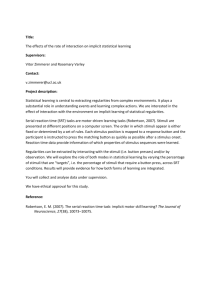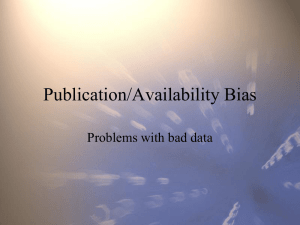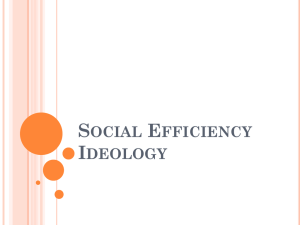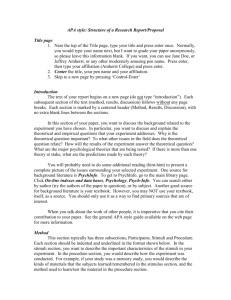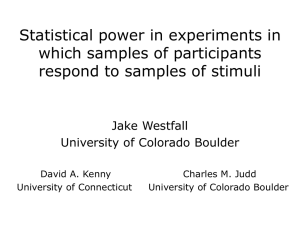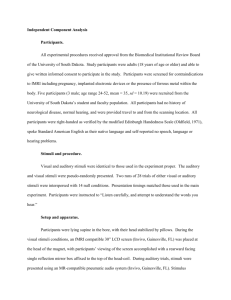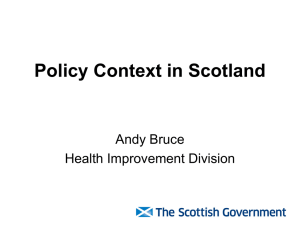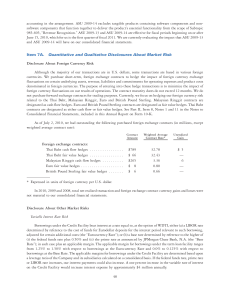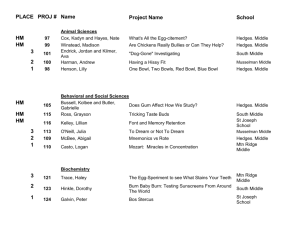Debriefing Form: Speech Performance Feedback
advertisement
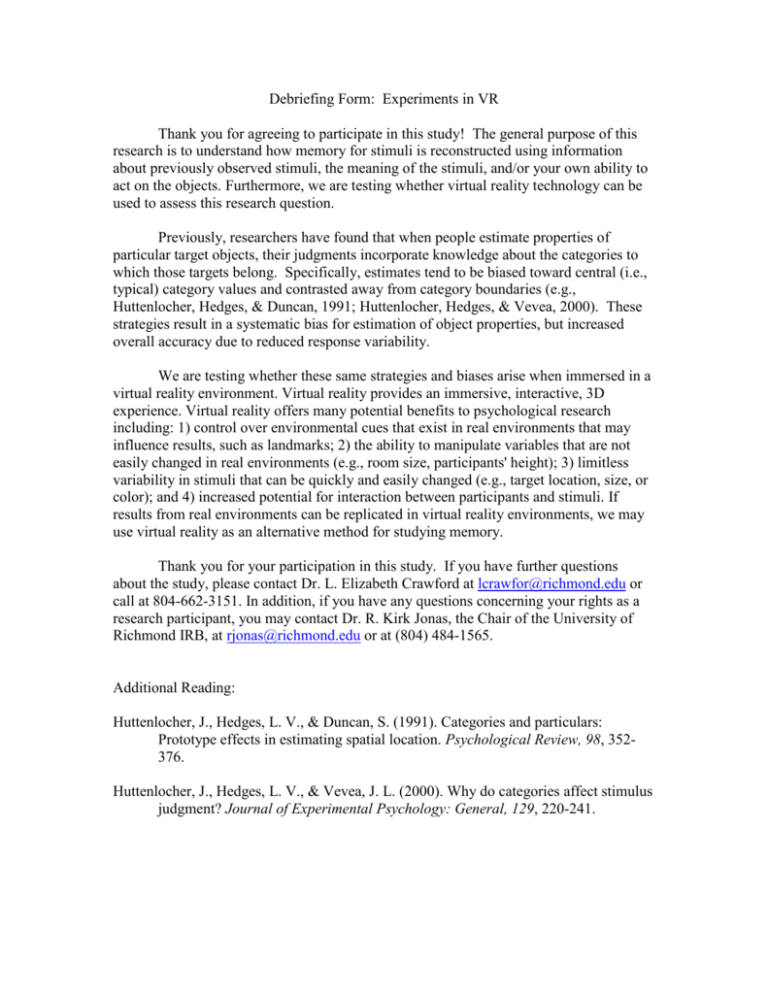
Debriefing Form: Experiments in VR Thank you for agreeing to participate in this study! The general purpose of this research is to understand how memory for stimuli is reconstructed using information about previously observed stimuli, the meaning of the stimuli, and/or your own ability to act on the objects. Furthermore, we are testing whether virtual reality technology can be used to assess this research question. Previously, researchers have found that when people estimate properties of particular target objects, their judgments incorporate knowledge about the categories to which those targets belong. Specifically, estimates tend to be biased toward central (i.e., typical) category values and contrasted away from category boundaries (e.g., Huttenlocher, Hedges, & Duncan, 1991; Huttenlocher, Hedges, & Vevea, 2000). These strategies result in a systematic bias for estimation of object properties, but increased overall accuracy due to reduced response variability. We are testing whether these same strategies and biases arise when immersed in a virtual reality environment. Virtual reality provides an immersive, interactive, 3D experience. Virtual reality offers many potential benefits to psychological research including: 1) control over environmental cues that exist in real environments that may influence results, such as landmarks; 2) the ability to manipulate variables that are not easily changed in real environments (e.g., room size, participants' height); 3) limitless variability in stimuli that can be quickly and easily changed (e.g., target location, size, or color); and 4) increased potential for interaction between participants and stimuli. If results from real environments can be replicated in virtual reality environments, we may use virtual reality as an alternative method for studying memory. Thank you for your participation in this study. If you have further questions about the study, please contact Dr. L. Elizabeth Crawford at lcrawfor@richmond.edu or call at 804-662-3151. In addition, if you have any questions concerning your rights as a research participant, you may contact Dr. R. Kirk Jonas, the Chair of the University of Richmond IRB, at rjonas@richmond.edu or at (804) 484-1565. Additional Reading: Huttenlocher, J., Hedges, L. V., & Duncan, S. (1991). Categories and particulars: Prototype effects in estimating spatial location. Psychological Review, 98, 352376. Huttenlocher, J., Hedges, L. V., & Vevea, J. L. (2000). Why do categories affect stimulus judgment? Journal of Experimental Psychology: General, 129, 220-241.
